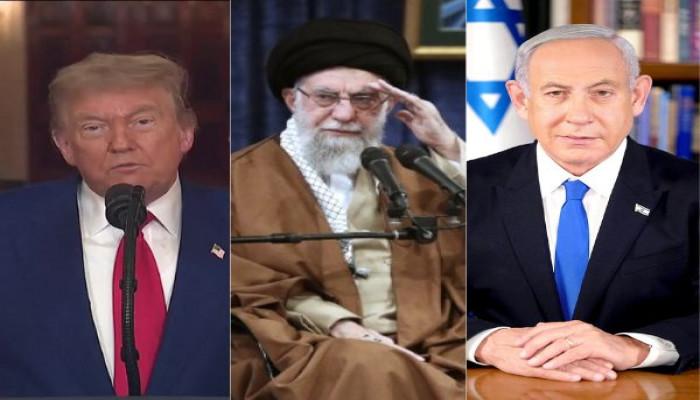Iran warns of stronger response if US or Israel strikes again
- In Reports
- 06:30 PM, Jul 29, 2025
- Myind Staff
Iran issued a strong warning and said it would respond "in a more definitive way" if the United States or Israel launches another attack on its nuclear sites in the near future.
The warning was made on Monday by Iranian Foreign Minister Abbas Araghchi after US President Donald Trump threatened to "wipe out" Iran's nuclear programme if atomic activity resumed.
"If aggression is being repeated, we will not hesitate to respond more decisively and in a way that will be IMPOSSIBLE to cover up," Araghchi wrote on X.
Araghchi also said that only negotiations, not threats, could address concerns about Iran’s nuclear programme. "If there are fears about the potential diversion of our nuclear program to non-peaceful uses, the 'military option' failed, but a negotiated option can work," he added.
The full extent of the damage from the US strikes remained unclear. The strikes followed a surprise Israeli bombing campaign, which Israel said was aimed at stopping Iran from developing nuclear weapons. The two back-to-back attacks stopped the nuclear talks between Tehran and Washington that had just resumed in April.
While visiting Scotland on Monday, Trump defended the earlier airstrikes and gave another warning. "They can restart it. If they do, we'll destroy it faster than you can shake your finger at it," he said.
Iran had earlier responded with missile attacks on Israeli cities and on a US base in Qatar, though Trump had earlier played down the seriousness of those responses.
Just a month earlier, a major clash had broken out between Iran and Israel, with Tel Aviv targeting nuclear facilities and killing senior Iranian generals and scientists.
The main issue behind the conflict was uranium enrichment. Tehran said it had the right to enrich uranium as part of its national sovereignty, but Washington called that a "red line." According to the International Atomic Energy Agency, Iran was the only non-nuclear-armed country enriching uranium up to 60 per cent, which was close to the 90 per cent required for weapons-grade material.
Iran repeatedly said it was not trying to develop nuclear weapons and had shown willingness to discuss limits on enrichment levels, but was not ready to give up the right to enrich.
"No one in their right mind would relinquish the fruits of enormous investment in indigenous and peaceful technology due to foreign bullying," Araghchi wrote in his post.
At the same time, Israeli forces launched a large-scale military operation called "Operation Rising Lion," which targeted Iran's main nuclear sites, including Natanz, Fordow, and Isfahan. Around 200 warplanes dropped over 330 bombs and missiles on more than 100 targets, including enrichment plants, centrifuge workshops, missile sites, and command centres.
After that, on June 22, the United States carried out its own large-scale strike under the name "Operation Midnight Hammer." Using B-2 stealth bombers and Tomahawk missiles, the US dropped 14 powerful bunker-buster bombs, causing extensive damage to all three of the nuclear facilities it targeted.







Comments